
Tomorrow is Halloween, which makes this a particularly opportune time to point out a fact that everyone already knows:
Of all of the genres of film, horror is overwhelmingly the best.
Wait . . . yeah, I
think I agree with what I just wrote.
That is, of course, if by
best you mean
most enjoyable and by
most enjoyable you mean
most consistently enjoyable. Horror is almost unique among film genres in that a really bad horror movie is sometimes just as fun to watch as a really good one. Or, to be more accurate, what makes bad horror movies more enjoyable to watch than, say, a bad romantic comedy, is that the enjoyment generally isn't derived from the cynical self-loathing typified by hate-watching, but instead comes from a more positive, natural-feeling place. You might like watching a bad, corny drama because you like feeling like you're smarter than Russell Crowe or a better person than Ron Howard (I promise that neither you nor I are either), but the corniness of a cheesy horror movie is actually part of what makes it
good. Because of that, even the most awfully executed horror movies are often more fun to watch than a just-decent comedy or even an above-average crime drama.
Partly, that's the case because it's fun to laugh at things that are supposed to scare us. When faced with a threat, there's nothing better than realizing that it's not a threat at all and laughing at the ridiculous notion that someone (or we ourselves) thought it might be. So, when you sit down to watch a horror movie with the anticipation that something is going to scare you and you're instead faced with a dude in some terrible rubber wolfman costume, the guffaws that come out can be real. But that also gets us to the point of why horror might actually be the
best of all film genres, and not just the most
enjoyable. Of all of the different types of stories we tell each other, scary stories are the most true. Not true in the sense that non-fiction is true, but true in that the mechanisms at its core are the most finely attuned to the gears that make us all work. As much as we might like to persuade ourselves that self actualization, the quest for love, or a deep-seated desire for personal liberty are the innate motivators of human action, the truth is that there is one thing at the core of all of those (and every other) motivator . . . . FEAR. If evolution is sausage-making factory, then fear -- of being killed, of dying alone, of losing control -- is the coal that nature burns to make the electricity necessary to get those weiners packed.
And because fear is nature's most reliable tool, any movie intended to scare us -- and thereby reveal the things that we are afraid of -- potentially has more to say about the contemporary human condition than a million Arcade Fire albums combined. Which is why critics have so much fun trying to parse out the meaning of horror-related trends. But I think that there's a danger in trying to read too much into current horror fads. While short-term trends might reveal something about the anxieties of a certain period of time, they might also say just as much about the contemporary political economy of filmmaking. Does the present ubiquity of zombies mean that we're subconsciously worried about the divisive mob mentality and corrosive conformity of post-industrial American capitalism, or does it just mean that major breakthroughs in zombie makeup techniques have made those types of movies easier to make? Are we drowning in found-footage horror flicks because thirty years of post-modernist deconstruction and the rapid fragmentation of news media have blurred the lines between fiction and reality to the extent that the question of what's real and what's fake is the most vexing one we have, or are they just really cheap to make? Ultimately, it's really impossible to decide whether changes in consumption patterns or production practices are what's really driving a short-term trend. So while the question is interesting, I wonder how productive it really is.
To me, the much more interesting question is what, after about ninety-ish years of the film industry as we know it, have been the most enduring horror tropes. What still doesn't seem totally hackneyed when done correctly, what can we therefore expect to continue to work in horror, and what does that tell us about what
really makes us tick?
 The Monster
The Monster
Probably the most prevalent and enduring horror movie trope, the fear of a monster can cut a couple of different ways. Generally, a monster represents some sort of outsider, a creature that is so exceptional -- either through its inability to relate to us (
Frakenstein) or some sort of supernatural power (
A Nightmare on Elm Street,
Friday the 13th--parts 2 through the reboot) -- that it simply can't coexist with humanity. Usually, that inability to mesh with humanity either leads the monster to some self-absorbed brooding that eventually manifests in an explosive anger that threatens the fabric of society (murder, generally), a maniacal vendetta, or is so intense that the monster exists on a plane entirely parallel to humanity, feeding off of it in some way (
Jeepers Creepers, a million vampire movies, zombies, etc). So there are two ways to think about monsters: either we fear the outsider because we worry that our inability to relate to it creates a rift so large that we have to destroy it or be destroyed, or we fear that, ultimately, the monster is us.
 Creepy Kids
Creepy Kids
The creepy kid trope is a newer take on the monster cliché (emerging since the 1970s, mostly) that is important enough that it deserves its own entry. Like the monster, the creepy kid can go a couple of ways. Sometimes the kids are creepy because they've encountered some supernatural phenomenon (
The Shining,
The Exorcist), but sometimes it's because the kid is actually the monster (
Audrey Rose,
The Omen,
The Ring). All of the tensions inherent in the monster trope are magnified in the creepy kid, but making the monster a child adds a layer of unique meaning to the horror. The impossibility of relating and its accompanying conclusions are still there, but because it's a kid the tension with mortality is more present. Whether you're a parent or not, the fact that we really have no way of relating to future generations is fundamentally linked to the equally inescapable truth that the creepy little effers are murdering us so they can take over the world.
 Possession/Demonic Attack
Possession/Demonic Attack
Horror movies focused on demonic possession or some other degree of demon-centric activity first became popular in the 1960s with movies like
The Innocents and
Rosemary's Baby and really took off after the success of
The Exorcist. The fear of possession obviously coincides with the "what if I'm the monster?" horror of the monster trope, but also can be boiled down to anxiety over the questionable existence of free will. We all like to believe that we're the masters of our own fate, that we can make choices that will affect our future in one way or another, but any idea that can only be explained by physicists if they
employ theories about alternate universes is ultimately pretty unsettling. When you pair possession with other instances of demonic activity in horror, you also open up the fear that the world does not work by the rules we think it does. In reality, the universe is a bogglingly complicated system, and the theories we've devised to explain it -- even after a half-millenia of scientific method -- are little more than guesses. The arcane knowledge and occult activities that give movies like
The Conjuring or
The Last Exorcism their creepy atmospheres are embodiments of our fear that what we don't know
can hurt us.
 Enclosed Spaces
Enclosed Spaces
If you ask me (which, I suppose, none of you did), this is the grand daddy of them all. Being trapped in an enclosed space works on any number of scales -- from individual climactic moments like falling into a grave to being buried alive to being trapped in a house (
Night of the Living Dead), mall (
Dawn of the Dead), or abandoned mental hospital (
Grave Encounters). Not to be too much of a downer, but the fear of enclosed spaces has to be related to the realization that, in the end, we've all already been buried alive. It's that consciousness of mortality that makes creepy kids so effective in horror, but using enclosed spaces to make the audience feel trapped makes it work on an even more intense level.
So, there's four horror tropes that seem to be pretty enduring. I'm sure that there are a million more that you can think of in the comments. More importantly, though, what can a trope's endurance tell us about what will always scare us? For my money, three basic human fears seem to be the inability to connect, the unverifiability of knowledge (about ourselves or the world around us), and death. I'm not sure you could draw similarly important conclusions about the human condition from analyzing Adam Sandler movies (though maybe I should try?), which is what makes horror the greatest of genres.
At least I think I believe that.
 Tomorrow is Halloween, which makes this a particularly opportune time to point out a fact that everyone already knows:
Of all of the genres of film, horror is overwhelmingly the best.
Wait . . . yeah, I think I agree with what I just wrote.
That is, of course, if by best you mean most enjoyable and by most enjoyable you mean most consistently enjoyable. Horror is almost unique among film genres in that a really bad horror movie is sometimes just as fun to watch as a really good one. Or, to be more accurate, what makes bad horror movies more enjoyable to watch than, say, a bad romantic comedy, is that the enjoyment generally isn't derived from the cynical self-loathing typified by hate-watching, but instead comes from a more positive, natural-feeling place. You might like watching a bad, corny drama because you like feeling like you're smarter than Russell Crowe or a better person than Ron Howard (I promise that neither you nor I are either), but the corniness of a cheesy horror movie is actually part of what makes it good. Because of that, even the most awfully executed horror movies are often more fun to watch than a just-decent comedy or even an above-average crime drama.
Partly, that's the case because it's fun to laugh at things that are supposed to scare us. When faced with a threat, there's nothing better than realizing that it's not a threat at all and laughing at the ridiculous notion that someone (or we ourselves) thought it might be. So, when you sit down to watch a horror movie with the anticipation that something is going to scare you and you're instead faced with a dude in some terrible rubber wolfman costume, the guffaws that come out can be real. But that also gets us to the point of why horror might actually be the best of all film genres, and not just the most enjoyable. Of all of the different types of stories we tell each other, scary stories are the most true. Not true in the sense that non-fiction is true, but true in that the mechanisms at its core are the most finely attuned to the gears that make us all work. As much as we might like to persuade ourselves that self actualization, the quest for love, or a deep-seated desire for personal liberty are the innate motivators of human action, the truth is that there is one thing at the core of all of those (and every other) motivator . . . . FEAR. If evolution is sausage-making factory, then fear -- of being killed, of dying alone, of losing control -- is the coal that nature burns to make the electricity necessary to get those weiners packed.
And because fear is nature's most reliable tool, any movie intended to scare us -- and thereby reveal the things that we are afraid of -- potentially has more to say about the contemporary human condition than a million Arcade Fire albums combined. Which is why critics have so much fun trying to parse out the meaning of horror-related trends. But I think that there's a danger in trying to read too much into current horror fads. While short-term trends might reveal something about the anxieties of a certain period of time, they might also say just as much about the contemporary political economy of filmmaking. Does the present ubiquity of zombies mean that we're subconsciously worried about the divisive mob mentality and corrosive conformity of post-industrial American capitalism, or does it just mean that major breakthroughs in zombie makeup techniques have made those types of movies easier to make? Are we drowning in found-footage horror flicks because thirty years of post-modernist deconstruction and the rapid fragmentation of news media have blurred the lines between fiction and reality to the extent that the question of what's real and what's fake is the most vexing one we have, or are they just really cheap to make? Ultimately, it's really impossible to decide whether changes in consumption patterns or production practices are what's really driving a short-term trend. So while the question is interesting, I wonder how productive it really is.
To me, the much more interesting question is what, after about ninety-ish years of the film industry as we know it, have been the most enduring horror tropes. What still doesn't seem totally hackneyed when done correctly, what can we therefore expect to continue to work in horror, and what does that tell us about what really makes us tick?
Tomorrow is Halloween, which makes this a particularly opportune time to point out a fact that everyone already knows:
Of all of the genres of film, horror is overwhelmingly the best.
Wait . . . yeah, I think I agree with what I just wrote.
That is, of course, if by best you mean most enjoyable and by most enjoyable you mean most consistently enjoyable. Horror is almost unique among film genres in that a really bad horror movie is sometimes just as fun to watch as a really good one. Or, to be more accurate, what makes bad horror movies more enjoyable to watch than, say, a bad romantic comedy, is that the enjoyment generally isn't derived from the cynical self-loathing typified by hate-watching, but instead comes from a more positive, natural-feeling place. You might like watching a bad, corny drama because you like feeling like you're smarter than Russell Crowe or a better person than Ron Howard (I promise that neither you nor I are either), but the corniness of a cheesy horror movie is actually part of what makes it good. Because of that, even the most awfully executed horror movies are often more fun to watch than a just-decent comedy or even an above-average crime drama.
Partly, that's the case because it's fun to laugh at things that are supposed to scare us. When faced with a threat, there's nothing better than realizing that it's not a threat at all and laughing at the ridiculous notion that someone (or we ourselves) thought it might be. So, when you sit down to watch a horror movie with the anticipation that something is going to scare you and you're instead faced with a dude in some terrible rubber wolfman costume, the guffaws that come out can be real. But that also gets us to the point of why horror might actually be the best of all film genres, and not just the most enjoyable. Of all of the different types of stories we tell each other, scary stories are the most true. Not true in the sense that non-fiction is true, but true in that the mechanisms at its core are the most finely attuned to the gears that make us all work. As much as we might like to persuade ourselves that self actualization, the quest for love, or a deep-seated desire for personal liberty are the innate motivators of human action, the truth is that there is one thing at the core of all of those (and every other) motivator . . . . FEAR. If evolution is sausage-making factory, then fear -- of being killed, of dying alone, of losing control -- is the coal that nature burns to make the electricity necessary to get those weiners packed.
And because fear is nature's most reliable tool, any movie intended to scare us -- and thereby reveal the things that we are afraid of -- potentially has more to say about the contemporary human condition than a million Arcade Fire albums combined. Which is why critics have so much fun trying to parse out the meaning of horror-related trends. But I think that there's a danger in trying to read too much into current horror fads. While short-term trends might reveal something about the anxieties of a certain period of time, they might also say just as much about the contemporary political economy of filmmaking. Does the present ubiquity of zombies mean that we're subconsciously worried about the divisive mob mentality and corrosive conformity of post-industrial American capitalism, or does it just mean that major breakthroughs in zombie makeup techniques have made those types of movies easier to make? Are we drowning in found-footage horror flicks because thirty years of post-modernist deconstruction and the rapid fragmentation of news media have blurred the lines between fiction and reality to the extent that the question of what's real and what's fake is the most vexing one we have, or are they just really cheap to make? Ultimately, it's really impossible to decide whether changes in consumption patterns or production practices are what's really driving a short-term trend. So while the question is interesting, I wonder how productive it really is.
To me, the much more interesting question is what, after about ninety-ish years of the film industry as we know it, have been the most enduring horror tropes. What still doesn't seem totally hackneyed when done correctly, what can we therefore expect to continue to work in horror, and what does that tell us about what really makes us tick?
 The Monster
Probably the most prevalent and enduring horror movie trope, the fear of a monster can cut a couple of different ways. Generally, a monster represents some sort of outsider, a creature that is so exceptional -- either through its inability to relate to us (Frakenstein) or some sort of supernatural power (A Nightmare on Elm Street, Friday the 13th--parts 2 through the reboot) -- that it simply can't coexist with humanity. Usually, that inability to mesh with humanity either leads the monster to some self-absorbed brooding that eventually manifests in an explosive anger that threatens the fabric of society (murder, generally), a maniacal vendetta, or is so intense that the monster exists on a plane entirely parallel to humanity, feeding off of it in some way (Jeepers Creepers, a million vampire movies, zombies, etc). So there are two ways to think about monsters: either we fear the outsider because we worry that our inability to relate to it creates a rift so large that we have to destroy it or be destroyed, or we fear that, ultimately, the monster is us.
The Monster
Probably the most prevalent and enduring horror movie trope, the fear of a monster can cut a couple of different ways. Generally, a monster represents some sort of outsider, a creature that is so exceptional -- either through its inability to relate to us (Frakenstein) or some sort of supernatural power (A Nightmare on Elm Street, Friday the 13th--parts 2 through the reboot) -- that it simply can't coexist with humanity. Usually, that inability to mesh with humanity either leads the monster to some self-absorbed brooding that eventually manifests in an explosive anger that threatens the fabric of society (murder, generally), a maniacal vendetta, or is so intense that the monster exists on a plane entirely parallel to humanity, feeding off of it in some way (Jeepers Creepers, a million vampire movies, zombies, etc). So there are two ways to think about monsters: either we fear the outsider because we worry that our inability to relate to it creates a rift so large that we have to destroy it or be destroyed, or we fear that, ultimately, the monster is us.
 Creepy Kids
The creepy kid trope is a newer take on the monster cliché (emerging since the 1970s, mostly) that is important enough that it deserves its own entry. Like the monster, the creepy kid can go a couple of ways. Sometimes the kids are creepy because they've encountered some supernatural phenomenon (The Shining, The Exorcist), but sometimes it's because the kid is actually the monster (Audrey Rose, The Omen, The Ring). All of the tensions inherent in the monster trope are magnified in the creepy kid, but making the monster a child adds a layer of unique meaning to the horror. The impossibility of relating and its accompanying conclusions are still there, but because it's a kid the tension with mortality is more present. Whether you're a parent or not, the fact that we really have no way of relating to future generations is fundamentally linked to the equally inescapable truth that the creepy little effers are murdering us so they can take over the world.
Creepy Kids
The creepy kid trope is a newer take on the monster cliché (emerging since the 1970s, mostly) that is important enough that it deserves its own entry. Like the monster, the creepy kid can go a couple of ways. Sometimes the kids are creepy because they've encountered some supernatural phenomenon (The Shining, The Exorcist), but sometimes it's because the kid is actually the monster (Audrey Rose, The Omen, The Ring). All of the tensions inherent in the monster trope are magnified in the creepy kid, but making the monster a child adds a layer of unique meaning to the horror. The impossibility of relating and its accompanying conclusions are still there, but because it's a kid the tension with mortality is more present. Whether you're a parent or not, the fact that we really have no way of relating to future generations is fundamentally linked to the equally inescapable truth that the creepy little effers are murdering us so they can take over the world.
 Possession/Demonic Attack
Horror movies focused on demonic possession or some other degree of demon-centric activity first became popular in the 1960s with movies like The Innocents and Rosemary's Baby and really took off after the success of The Exorcist. The fear of possession obviously coincides with the "what if I'm the monster?" horror of the monster trope, but also can be boiled down to anxiety over the questionable existence of free will. We all like to believe that we're the masters of our own fate, that we can make choices that will affect our future in one way or another, but any idea that can only be explained by physicists if they employ theories about alternate universes is ultimately pretty unsettling. When you pair possession with other instances of demonic activity in horror, you also open up the fear that the world does not work by the rules we think it does. In reality, the universe is a bogglingly complicated system, and the theories we've devised to explain it -- even after a half-millenia of scientific method -- are little more than guesses. The arcane knowledge and occult activities that give movies like The Conjuring or The Last Exorcism their creepy atmospheres are embodiments of our fear that what we don't know can hurt us.
Possession/Demonic Attack
Horror movies focused on demonic possession or some other degree of demon-centric activity first became popular in the 1960s with movies like The Innocents and Rosemary's Baby and really took off after the success of The Exorcist. The fear of possession obviously coincides with the "what if I'm the monster?" horror of the monster trope, but also can be boiled down to anxiety over the questionable existence of free will. We all like to believe that we're the masters of our own fate, that we can make choices that will affect our future in one way or another, but any idea that can only be explained by physicists if they employ theories about alternate universes is ultimately pretty unsettling. When you pair possession with other instances of demonic activity in horror, you also open up the fear that the world does not work by the rules we think it does. In reality, the universe is a bogglingly complicated system, and the theories we've devised to explain it -- even after a half-millenia of scientific method -- are little more than guesses. The arcane knowledge and occult activities that give movies like The Conjuring or The Last Exorcism their creepy atmospheres are embodiments of our fear that what we don't know can hurt us.
 Enclosed Spaces
If you ask me (which, I suppose, none of you did), this is the grand daddy of them all. Being trapped in an enclosed space works on any number of scales -- from individual climactic moments like falling into a grave to being buried alive to being trapped in a house (Night of the Living Dead), mall (Dawn of the Dead), or abandoned mental hospital (Grave Encounters). Not to be too much of a downer, but the fear of enclosed spaces has to be related to the realization that, in the end, we've all already been buried alive. It's that consciousness of mortality that makes creepy kids so effective in horror, but using enclosed spaces to make the audience feel trapped makes it work on an even more intense level.
So, there's four horror tropes that seem to be pretty enduring. I'm sure that there are a million more that you can think of in the comments. More importantly, though, what can a trope's endurance tell us about what will always scare us? For my money, three basic human fears seem to be the inability to connect, the unverifiability of knowledge (about ourselves or the world around us), and death. I'm not sure you could draw similarly important conclusions about the human condition from analyzing Adam Sandler movies (though maybe I should try?), which is what makes horror the greatest of genres.
At least I think I believe that.
Enclosed Spaces
If you ask me (which, I suppose, none of you did), this is the grand daddy of them all. Being trapped in an enclosed space works on any number of scales -- from individual climactic moments like falling into a grave to being buried alive to being trapped in a house (Night of the Living Dead), mall (Dawn of the Dead), or abandoned mental hospital (Grave Encounters). Not to be too much of a downer, but the fear of enclosed spaces has to be related to the realization that, in the end, we've all already been buried alive. It's that consciousness of mortality that makes creepy kids so effective in horror, but using enclosed spaces to make the audience feel trapped makes it work on an even more intense level.
So, there's four horror tropes that seem to be pretty enduring. I'm sure that there are a million more that you can think of in the comments. More importantly, though, what can a trope's endurance tell us about what will always scare us? For my money, three basic human fears seem to be the inability to connect, the unverifiability of knowledge (about ourselves or the world around us), and death. I'm not sure you could draw similarly important conclusions about the human condition from analyzing Adam Sandler movies (though maybe I should try?), which is what makes horror the greatest of genres.
At least I think I believe that.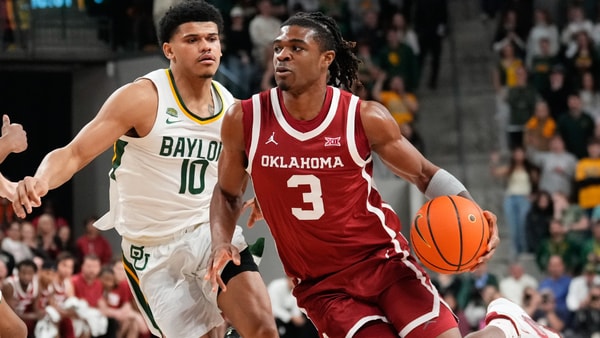
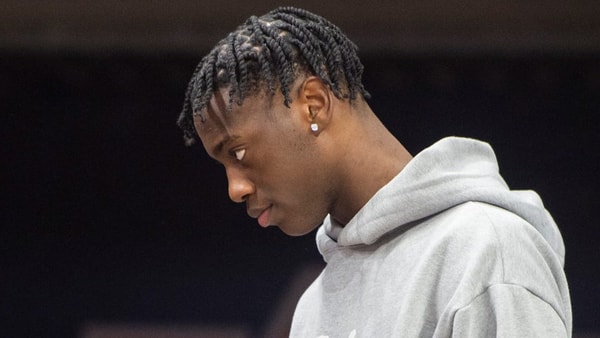
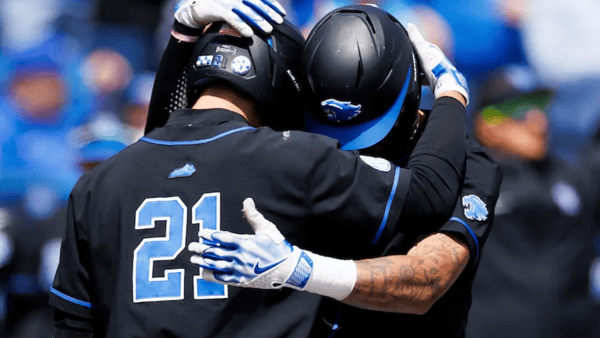
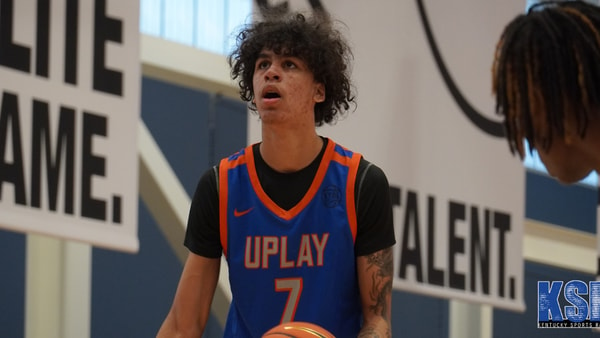
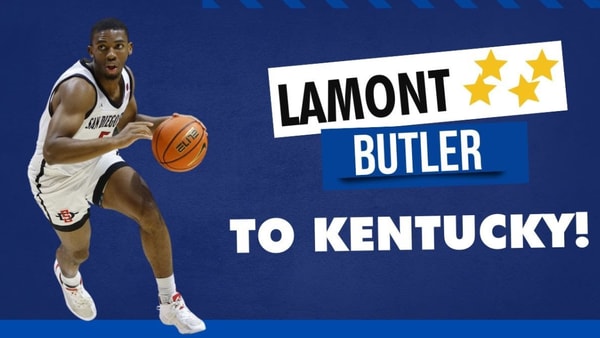
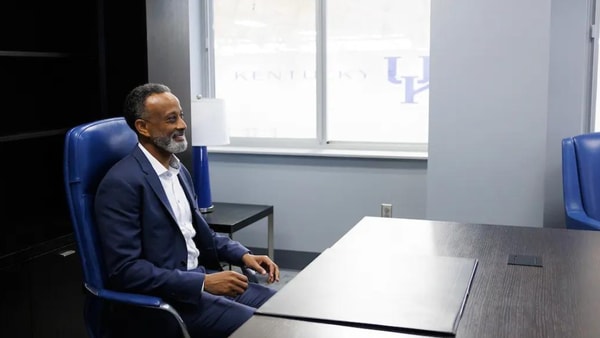

Discuss This Article
Comments have moved.
Join the conversation and talk about this article and all things Kentucky Sports in the new KSR Message Board.
KSBoard